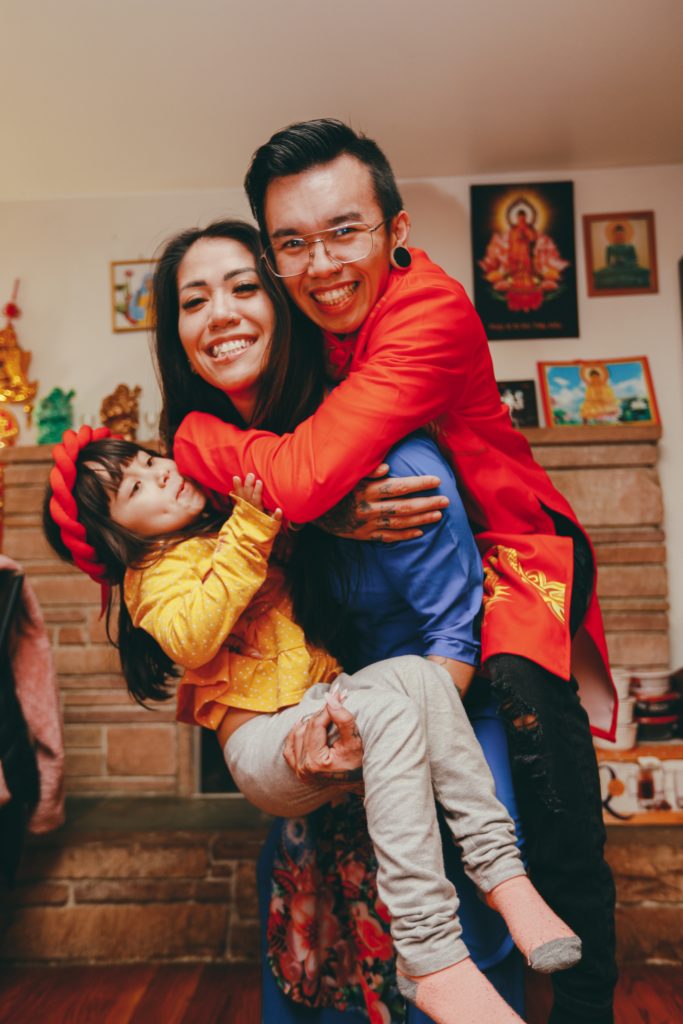What is Family Coaching?

What do you hope for most for your kids/family? When posed this question, most caregivers reply with a resounding ‘HAPPINESS’ or “CONFIDENCE!’ Afterall, don’t we all want our children to live a life of satisfaction and fulfillment?
When I think about my desire to ensure this for my two young adult children, I can easily become deflated, as I know that sometimes I’m struggling to keep my own head above water, let alone helping others do the same. Then the safety announcement at the beginning of a plane ride comes to mind…you know, the one about the need to put on your own mask before helping dependents. But this feels wrong. I’ve always been one to help others before tending to my own needs. When taken at face value though, it’s true. If you are with someone who requires your help, the only way you can ensure their safety is if you do it yourself. If you cannot help them, how do you know if they will be helped?
So, my first acknowledgement is that you advocate for your own self-care. YOU MUST TAKE CARE OF YOURSELF. I say this for multiple reasons. First, you deserve it. It’s that simple. But perhaps more cogently, your kids require it. You see, young people learn from almost everything they see, hear, and do. I’m going to say that again. Children learn something, whether it’s what we want them to learn or not, from most observances they encounter. If you are who they are around the most, your actions and behaviors are what they will learn the most from. You probably only want them to learn from the best that you put forward, and if you’re like me, I only do so when I’m at my best. Enter consistent self-care, so you can more consistently be at your best!
You may ask what this has to do with family coaching, and it’s a valid question. There are many ways to define a family coach’s role. I like to describe a Family Coach as…
Someone who engages with you to help bring out the best in yourself and your family.
Pretty simple, right? Maybe. Notice I started with YOU. I engage with you to bring out your best self. This likely sounds like life coaching, which it is. To bring out the best in a child or adolescent, THEY may also benefit from life coaching. However, because the lives of families are so intertwined, it may also require some relationship coaching. This can take many forms. If two caregivers have drastically different lived experiences and therefore distinct ways to approach parenting, it may be beneficial to work together to find commonalities that both parents can engage with. If you are a single parent, you may face other challenges, including finding the time and strength to do all you need to without fully depleting yourself. If your relationship with a tween or teen is stretched, you may find the most support when we work together so I can observe your interaction and communication with one another. Perhaps your kids have challenges with one another and you’d like to work on sibling rivalry or you have a blended family and wish to forge a stronger understanding between stepsiblings. The list of possibilities goes on. However, a brief list may be summarized as:
- life coaching for youth, adolescents, and adults;
- parent coaching for a variety of caregiver roles and configurations; and
- relationship coaching for multiple purposes (not including marriage counseling/therapy),
which brings us to another common question: the difference between coaching and therapy/counseling. My main distinguishing factor is this…many people who seek out mental health or other holistic wellbeing support wind up spending a certain amount of time discussing occurrences of the past, trying to move from a negative/deficit state of being to a survival state. This is very needed in many instances. Rather than focusing on the past, what I try to do is use our experiences and learnings from past events to move us into a future state defined by less stress, anxiety, and depression and more optimism, hope, and resilience. It is as if we were moving not from -5 to 0 on a continuum, but rather 0 to +5. This does not mean that we ignore or negate our challenges. Rather, we recognize our learning from them and use this to find new and creative ways to tap into these successes in future endeavors. It’s moving from a glass half empty mindset to one that is half (or completely!) full.
My use of the word mindset was not by accident. Much of the work we’ll engage in revolves around building a mindset/perspective of mindfulness, positivity, and gratitude. These traits are amongst those that have been studied the most in the science of happiness. Therefore, if we truly want our youth (and ourselves) to be happy, these are traits that we need to work to habituate. In the process, we encourage healthy risk taking in a safe setting, which builds confidence and motivation to challenge ourselves in new ways. This stepping out of our norm is where we see the most growth. It sounds complicated but can come about faster than you think in a compassionate, nonjudgmental setting where new learning is the goal. Often, parents have all they need to be successful and loving caregivers and simply need someone to help them see it. Sometimes, they benefit from the introduction to and practice of new skills, knowledge, and understanding. Reach out to me today…together we can help your family flourish. This first step is the hardest. Once you’ve committed to growth, a thriving family is well within reach!
